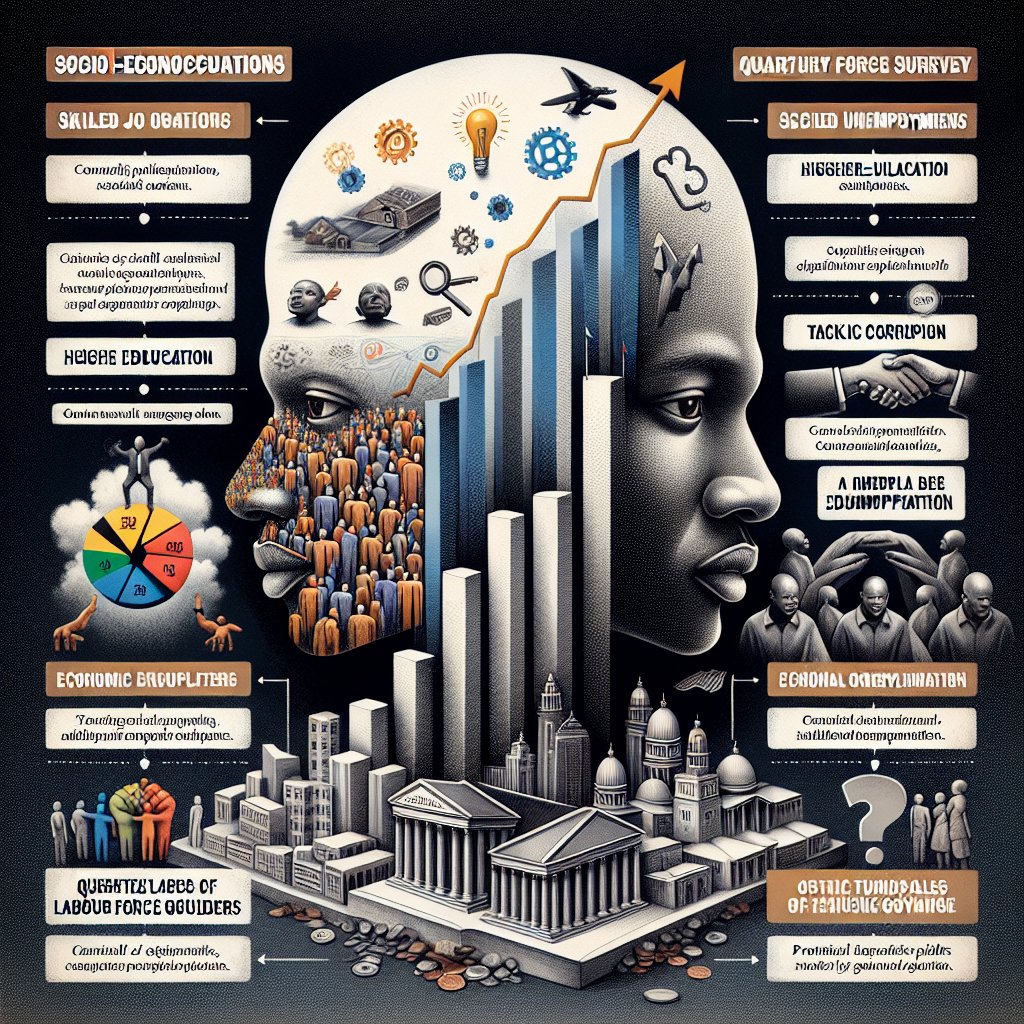Content created by AI
Inequality in Post-Apartheid South Africa: A Path to Equitable Progress?
In South Africa, the shadow of apartheid still looms large over the socio-economic landscape, despite efforts to create an equitable society. Statistics from various sources, including the Census 2022 report, demonstrate a troubling stagnation and regression among black and coloured communities in accessing skilled employment and higher education completion rates.
Dr. Pali Lehohla, the former head of Statistics South Africa, has critically assessed these disparities, unearthing a stark contrast between the country's racial groups. While white and Indian South Africans show significant progress in educational and economic metrics post-apartheid, black and coloured South Africans struggle to achieve similar gains. The Census 2022 data confirms that blacks and coloureds complete higher education at much lower rates than their white peers, compromising their prospects in the skilled workforce.
The Quarterly Labour Force Survey by Stats SA further unveils the disproportionate representation in skilled employment, with whites making up 65% of the skilled workforce in 2023, as opposed to 15% for blacks on average. Lehohla's observations point to a society where policy initiatives such as Broad-Based Black Economic Empowerment (BBEE) seem insufficient in addressing the ongoing disparities.
Lehohla laments the government's approach to higher education funding, proposing universal coverage for all students as a way forward. This would not only streamline access but could contribute to nation-building and a robust tax base. Such measures, however, are mere components of a broader strategy required to address systemic issues.
The former statistician-general has called for profound introspection among South Africans of all races to foster solutions. The high unemployment rate among black citizens (39%) reflects societal inequalities and socio-economic dynamics that demand a shift from superficial reforms to more structural changes.
Addressing these challenges entails rigorous economic modelling, a clean and ethical civil service sector, and comprehensive social policies that align with the country's demographic realities and rectify historical injustices. Additionally, tackling endemic corruption within the public sector is vital to restoring trust and encouraging investment in South Africa's economy and infrastructure.
Drawing parallels with other nations, Lehohla urges looking at the examples set by Bolivia, which successfully merged economic and social policies to address poverty and inequality, and post-genocide Rwanda's commitment to evidence-based policymaking, cleanliness, and social progress.
As Lehohla sees it, the upcoming elections offer little promise unless they are grounded in the harsh realities laid bare by the data. Without substantial change, the ongoing cycle of socio-economic stagnation threatens to continue unbroken.
In conclusion, the statistics presented by Dr. Pali Lehohla paint a grim reality of a divided South Africa, where the promise of a new era has yet to be fulfilled for its black and coloured population. Lehohla's insights chart a course towards genuine transformation, built on the pillars of education, employment, and ethical governance.

